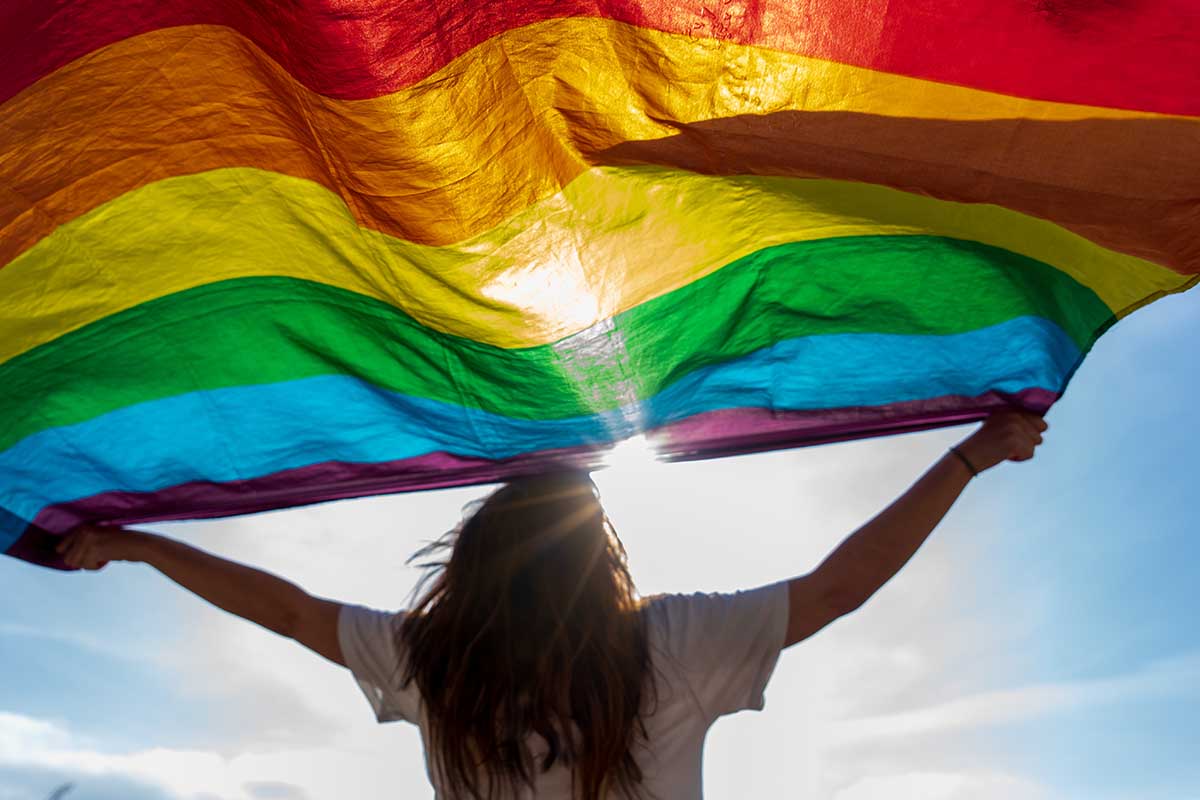Compared to the general population, the rates of mental health disorders and substance use disorders are significantly higher among the LGBTQ community. Members of the LGBTQ community are at increased risk of experiencing trauma centered around shame, discrimination, abuse, acts of violence, and hate crimes. At Westwind Recovery®, all of our treatment programs and sober living houses are LGBTQ-inclusive. However, our LGBTQ addiction treatment center offers specialized care and support from providers who have specific experience working with the LGBTQ community. Further, we work with a local LGBTQ resource center to provide aftercare programs and services.
If you or a loved one identifies as LGBTQ and needs substance abuse or mental health treatment, Westwind Recovery® can provide compassionate, individualized treatment in a safe and inclusive environment. Reach out to us at 855.340.8832.
The Link Between LGBTQ Trauma and Addiction
Trauma is defined as a deeply disturbing or distressing experience that threatens a person’s sense of safety and wellbeing. Most people associate trauma with a specific incident or experience, such as a major accident or military combat. For members of the LGBTQ community, trauma can look much different and is usually the result of ongoing situations rather than a specific event. Frequently reported sources of trauma among the LGBTQ community include:
- Being bullied
- Being the target of hate crimes
- Rejection or disownment by family and friends
- Social stigmatization
- Discrimination
- Homelessness
- Being the victim of physical, mental, or sexual abuse
As a result of the discrimination, rejection, and abuse often experienced, those who are part of the LGBTQ community could hide or suppress their true identity and develop internalized homophobia, contributing to ongoing trauma. Over time this untreated trauma leads to mental health disorders such as PTSD, anxiety, depression, eating disorders, and self-harm. Isolation and withdrawal are also common to avoid being confronted with harassment, ridicule, or rejection. The unfortunate outcome is that individuals turn to drugs, alcohol, or both to find relief from their psychological and emotional distress, resulting in a range of substance use disorders.
The Importance of Mental Health Treatment for Members of the LGBTQ Community
At Westwind Recovery®, we understand that those who identify as LGBTQ have often spent their lives conforming to social norms that do not fit
their identities, causing them to feel misunderstood, undervalued, and isolated. We challenge ourselves to stay on the cutting edge of mental health treatment options for our LGBTQ clients.
In all of our programs, from detox through aftercare planning, we provide programming that is LGBTQ-inclusive and designed to address LGBTQ-specific issues, including:
- Coming out
- The relationship between drugs, alcohol, and sex
- The connection between trauma and substance use disorders
- Social stigmas and discrimination
- Internalized homophobia or self-hatred
- The impacts of trauma and abuse
- Rejection from family or friends
At our recovery center, you will have the support of a compassionate treatment team and peers who can relate to your experiences. You will have the opportunity to participate in group therapy sessions and 12-step meetings specifically designed to address the needs of the LGBTQ+ community in recovery. Westwind Recovery® ensures that our clients are set up for success after leaving our LGBTQ addiction treatment center through aftercare planning and our alumni program.
Reach Out to Westwind Recovery® for LGBTQ-Inclusive Dual Diagnosis Treatment
At Westwind Recovery®, we understand the connection between trauma and addiction among members of the LGBTQ community. Our treatment programs and sober living homes are inclusive of everyone. We are proud to be a leader in treatment that addresses the specific needs of the LGBTQ community in recovery. We offer a broad array of holistic and evidence-based therapies to promote complete healing, such as:
- Trauma therapy
- Yoga and meditation
- Individual, group, and family therapy
- Life skills training
- 12-step therapy
- Nutrition and wellness
- Relapse prevention
To learn more about how we can help you embrace your authentic self, break the cycle of addiction, and experience the healing you deserve, reach out to us today. Call us at 855.340.8832 or use our secure online form.

Dr. Deena is the Chief Clinical Officer of Westwind Recovery®, an award-winning outpatient treatment center in Los Angeles where she oversees the clinical and administrative program and treatment methods. Dr. Deena is a doctor of psychology and licensed clinical social worker since 1993. LCSW #20628. Originally from the East Coast, Dr. Deena has worked running treatment centers, worked as a therapist in psychiatric hospitals as well as school settings and currently has a thriving private practice in the LA area. Dr. Deena has appeared regularly on the Dr. Phil Show as an expert since 2003. She has also been featured on many other TV shows, podcasts and has contributed to written publications as well as podcasts.



